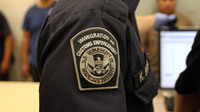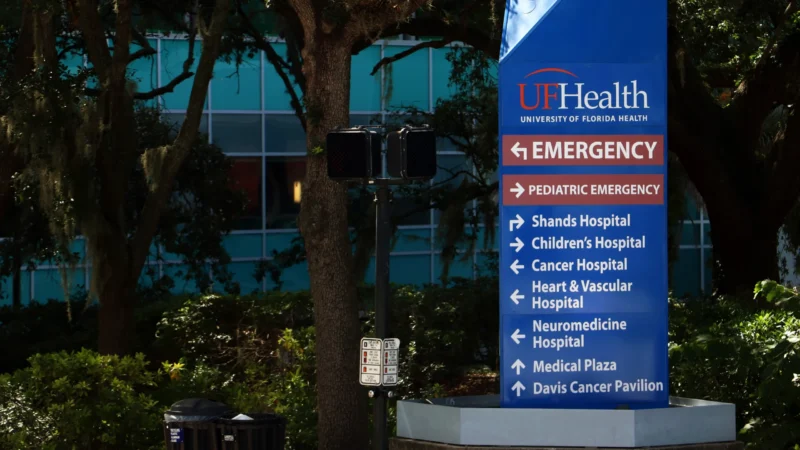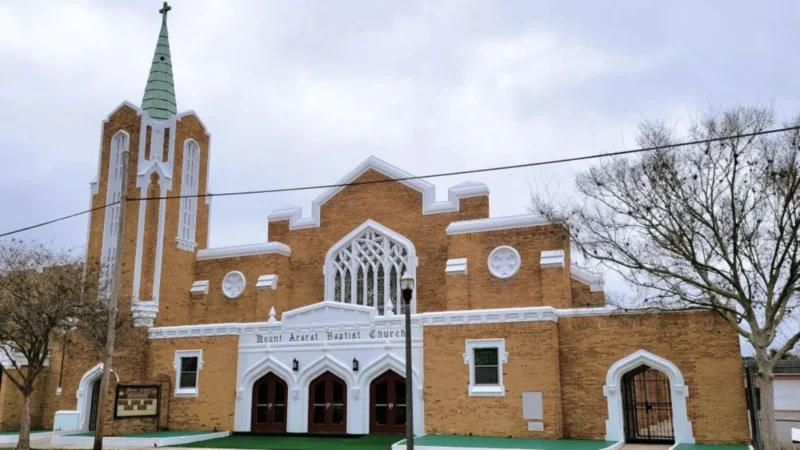A proposed Florida bill that would stiffen requirements on businesses to check the immigration status of workers and make it a felony to transport people who may be in this country without legal status is causing alarm among Hispanic-American and religious leaders.
As the bill powers its way through the Florida House and Senate, some local leaders spoke out about its part in an apparent immigrant crackdown by Gov. Ron DeSantis and Republican lawmakers on WJCT’s First Coast Connect with Melissa Ross.
The bill indicates the changes are aimed at curbing human smuggling. But opponents raised the prospect of people and groups such as churches being prosecuted for transporting immigrants into the state. With more than half a million U.S. citizens living with at least one undocumented family member, and more than 2 million Floridians with at least one immigrant parent, it is a scary bill, said Jorge Bertran, a member of the St. Johns County Hispanic American Advisory Council.
“That is terrifying language. The definition of smuggling as it’s presented in the bill is overbroad, and it really causes concern for the community,” Bertran said. “There are too many scenarios that would be considered smuggling under this bill: a church van transporting members to the church; a coworker giving an immigrant a ride; a wife taking their spouse or their child to work, which is entirely problematic due to the high number of mixed status homes that are in the state of Florida.”
There are also the humanitarian aspects of the bill, which could hold some immigrants from seeking needed medical care, said Andrea Reyes, president of the Northeast Florida Immigrant Resource Alliance.
“Immigrants barely seek medical attention as it is, and requiring hospitals to provide their immigration status to hospitals, when they’re seeking medical care, will ensure that they don’t seek it at all,” said Reyes, who is also an immigration attorney. “It would actually require hospitals who are accepting Medicaid to collect and report immigration status data, and submit a quarterly report to the Agency for Healthcare Administration. … At the end of the day, the chilling effect, the rhetoric of this bill, is going to create a lot of damage to immigrant communities.”
The bill would requires hospitals to collect patient immigration status information on admission, as well as mandate that certain private employers use the E-Verify system to confirm employment eligibility of anyone who accepts employment. It authorizes the Florida Department of Economic Opportunity to enforce requirements to use E-Verify as well as conduct random audits of employers.
Another key part of the bill would require law enforcement agencies to take DNA samples from people being held on federal immigration detainers. The samples would be sent to the Florida Department of Law Enforcement. Among other mandates, it would toughen criminal penalties for transporting undocumented immigrants into Florida.
DeSantis and the Legislature have passed a series of changes in recent years to target illegal immigration, including a 2019 law that banned so-called sanctuary cities. A federal appeals court this month tossed out a constitutional challenge to that law.
The Republican-controlled House Commerce Committee voted 13-5 to approve the latest bill as the annual legislative session nears its end, with the Senate Fiscal Policy Committee now taking up its version of the bill.
The bills have reignited debate about what the state’s role should be in addressing illegal immigration after the governor has frequently criticized federal immigration policies and pushed for the state to take action, according to the News Service of Florida.
“We simply have got a crisis in our nation, and we cannot as lawmakers ignore that there’s a crisis,” said Rep. Kiyan Michael, a Jacksonville Republican who is one of the sponsors of the House bill.
But opponents said the bill would hurt businesses and immigrants and is rooted in DeSantis’ political ambition.
“I’m tired of this body leaning into these culture wars, as opposed to dealing with the real issues that we have for Floridians that are already in this state that are U.S. citizens, lawful-permit residents,” said Rep. Dotie Joseph, D-North Miami. “We have real needs right here.”
The bill also violated the First Amendment, Bertran said. It would limit the free expression of religion because it hinders the ability of church pastors to care for anyone in need, making it unconstitutional because as a religious person, you have to take care of the needy, he said.
The bill has drawn opposition or concerns from a wide range of groups, such as Associated Industries of Florida, the Florida Conference of Catholic Bishops, the American Civil Liberties Union of Florida and the Florida Immigrant Coalition.
9(MDEwNzczMDA2MDEzNTg3ODA1MTAzZjYxNg004))






